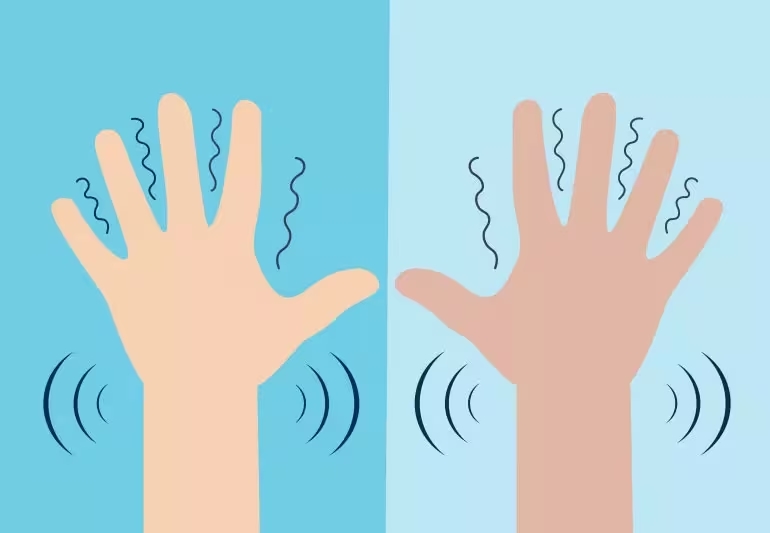Don’t Believe Everything You Read (Including This)

I just recently finished reading Science Fictions, by author Stuart J. Ritchie, Ph.D., a Scottish psychologist from the Institute of Psychiatry, Psychology and Neuroscience at King’s College London. In this wonderful book he clearly outlines and exposes some of the fraud, bias, negligence, and hype that has seeped its way into our scientific research, as well as into the international academic university system, as a whole. While alarming, the book serves as an effective guide for picking out the flaws that we see in all of the scientific news that we are bombarded with in our feeds and in our media (news, social media, YouTube, etc.).
Because of this, I have been looking back at a subject of research that has become a cornerstone of, what I call, the social medical community, to see if it holds up to scrutiny. Why? Because this is information that has most likely been mentioned to you by a doctor or a close friend or family member, and because it has popped up in one of my conversations recently as I ate a chocolate chip granola bar before my half-mile swim. Interestingly, after a quick review of the research, it didn’t hold up to scrutiny.
Does this mean that this advice and this research’s conclusions aren’t true? Not exactly. What it does mean is that the assumptions that have been made and the advice that has been given because of it, DOES NOT have the scientific data to back it up. We are literally taking this advice because some scientist, or group of scientists, believed in it SO much that they unscientifically allowed, through fraud, bias, negligence, or hype, for their elicit findings to become standard practice.
I find this so extremely interesting because it is actually a real thing. It is Hypoglycemia. Hypoglycemia is a medical condition. This condition occurs when your blood sugar level is lower than what is referred to as the standard range (in between too much blood sugar or too little blood sugar – 70 mg/dL to 140 mg/dL).
Being your body’s main source of energy, Glucose is very important and the human body is extremely efficient at ensuring that your muscles and your brain have the required energy that they need. Because of this the body has stores of Glucose stashed throughout your body. Not only is it in your bloodstream, but it is also found in your Liver and in ALL of your Muscles.
Why then, are we having this remedial Biology lesson? Because, more often than not, Hypoglycemia is something that we see in relation to treatment for diabetes. Outside of that, you have a “0.0036%” chance for someone to have non-Diabetes related Hypoglycemia, according an article from July 17, 2023 by Fahad W. Ahmed; Muhammad S. Majeed; Omar Kirresh, titled Non-Diabetic Hypoglycemia, which can be found in the National Institute of Health, National Library of Medicine research article website. That means that 36 out of 10000 people have this condition. And, if they do have Hypoglycemia it is usually associated with a severe medical condition, like Alcoholism, Liver Failure, Kidney Failure, Primary Adrenal Gland Failure, Cerebral Malaria, Anterior Pituitary Gland Failure, Drug-Induced Hypoglycemia (meaning a medication that you took caused it), Infections, and a whole other host of horrible medical conditions that you wouldn’t wish on your worst enemy.
Why then do we have perfectly healthy people, people who are not Diabetic, nor do they have any condition that leads to or relates to Hypoglycemia, running out to get Glucose Monitors and jab them into the back of their arms? Marketing and Hype. They are being sold the idea that by monitoring their Glucose levels continuously, that they will be able to “track their glucose concentrations in order to promote healthy habits such as increased activity, changes in nutrition, and sleep habits”, as purported
in the article, “Use of Continuous Glucose Monitors by People Without Diabetes: An Idea Whose Time Has Come?”, by David C. Klonoff; Kevin T. Nguyen; Nicole Y. Xu; Alberto Gutierrez; , Juan C. Espinoza; and Alaina P. Vidmar.
The problem that I see with all of this, is that it disregards the inherent and required fluctuations that exist within our biology. Each one of us is a complex organic system, and according to nutritionist Sarah Berry, a professor of nutrition at King’s College, “These peaks and troughs are the normal physiological response to consuming carbohydrates, in people without diabetes”, “We do not need to flatten these curves”. This is why I have an issue with normal, healthy people using Continuous Glucose Monitors (CGMs) to guide your general health. If you do not have Diabetes, or any other medical issue that could or did lead to Hypoglycemia, then I feel that there is no reason to be using this product.
If you are generally healthy, then let your body do what it was meant to do. As we have all done throughout the decades and millennia that we as humans have walked this Earth. Let all of your systems rise and fall as you go through the day. You don’t need a device to tell you when to eat. Just eat when you are hungry. I would suggest that it be a wholesome and healthy meal that hits all of the macro and micro nutrients, and that it is loaded with vitamins and minerals.
Enjoy!
Michael Sahno, MS APK, TSAC-F






Responses